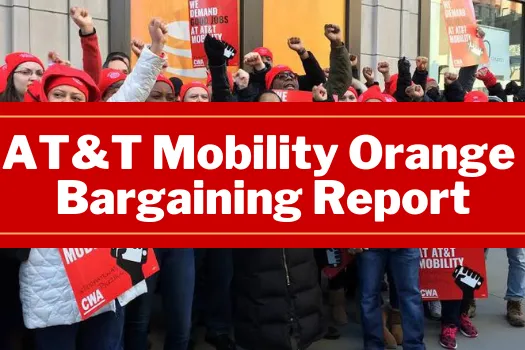This Week in Labor History - November 1
In the nation’s first general strike for a 10-hour day, 300 armed Irish longshoremen marched through the streets of Philadelphia calling on other workers to join them. Some 20,000 did, from clerks to bricklayers to city employees and other occupations. The city announced a 10-hour workday within the week; private employers followed suit three weeks later – 1835 (Strikes Around the World: Are strikes going out of fashion or are they an inevitable feature of working life? This is a longstanding debate. The much-proclaimed ‘withering away of the strike’ in the 1950s was quickly overturned by the ‘resurgence of class conflict’ in the late 1960s and 1970s. The period since then has been characterized as one of ‘labor quiescence’. Commentators again predict the strike’s demise, at least in the former heartlands of capitalism.)
(Strikes Around the World: Are strikes going out of fashion or are they an inevitable feature of working life? This is a longstanding debate. The much-proclaimed ‘withering away of the strike’ in the 1950s was quickly overturned by the ‘resurgence of class conflict’ in the late 1960s and 1970s. The period since then has been characterized as one of ‘labor quiescence’. Commentators again predict the strike’s demise, at least in the former heartlands of capitalism.)
Thirty-seven Black striking Louisiana sugar workers are murdered when Louisiana militia, aided by bands of "prominent citizens," shoot unarmed workers trying to get a dollar-per-day wage. Two strike leaders are lynched - 1887
Malbone tunnel disaster in New York City; inexperienced scab motorman crashes five-car train during  strike, 97 killed, 255 injured - 1918
strike, 97 killed, 255 injured - 1918
Some 400,000 soft coal miners strike for higher wages and shorter hours - 1919
United Stone & Allied Products Workers of America merge with United Steelworkers of America - 1972
The UAW begins what was to become a successful 172-day strike against International Harvester. The union turned back company demands for weakened work rules, mandatory overtime - 1979
Honda assembles the first-ever Japanese car manufactured in a U.S. plant, in Marysville, Ohio - 1982
🚨🟠📢 CWA / AT&T 2026 “Orange” Mobility Contract Bargaining Report #13 📢🟠🚨
AT&T Orange Mobility Members Mobilize As Another Contract Expiration Date Looms

